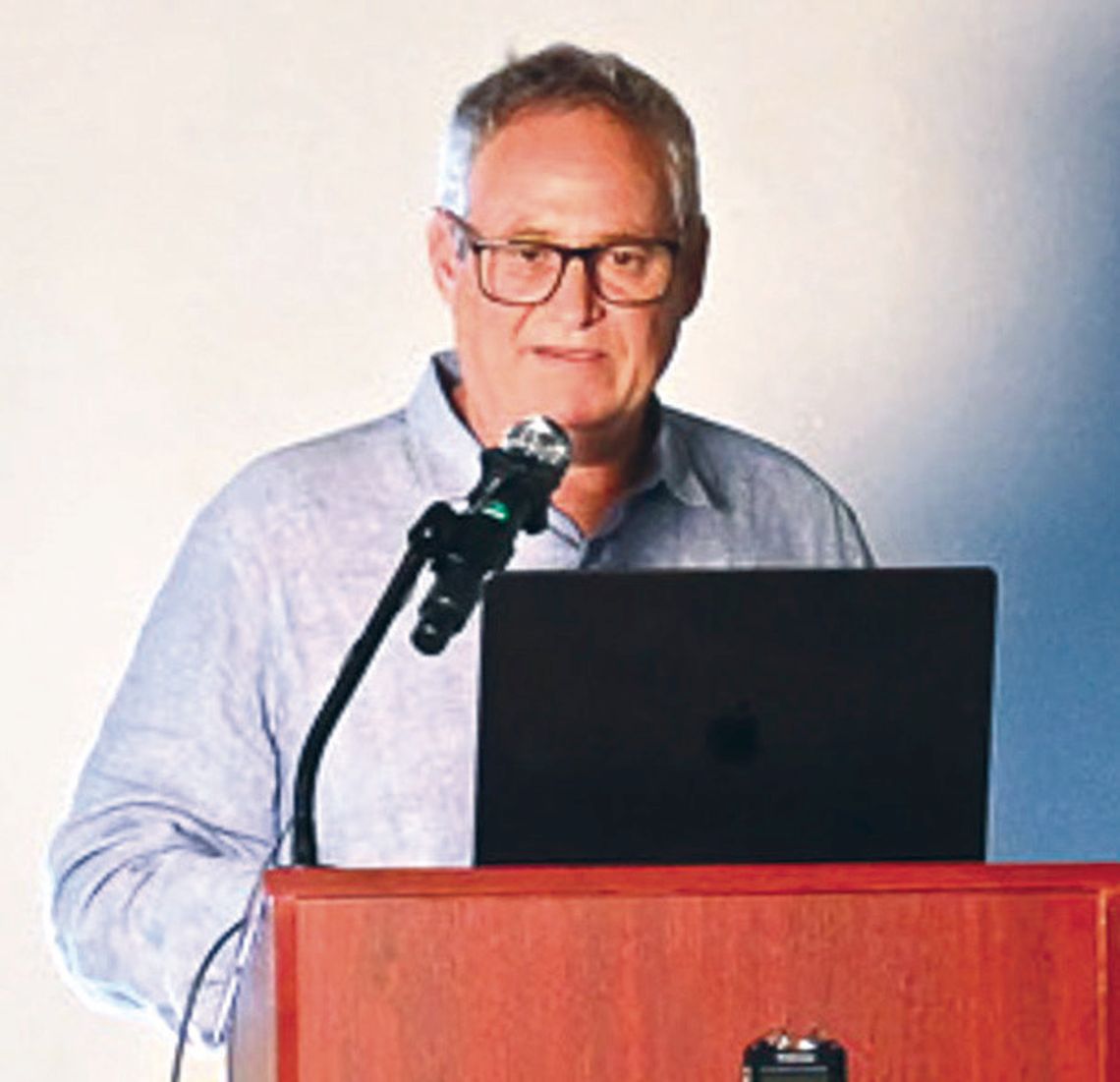In Part Four of this series about the dispute between Aqua Texas and the Hays Trinity Groundwater Conservation District, David Baker, Executive Director of the Wimberley Valley Watershed Association told the citizens who attended the February 9 community meeting called by the Watershed Association and the Trinity Edwards Springs Protection Association about the urgency to protect the area’s water resources.
Baker opened his remarks by saying, “Wimberley is a com- munity that’s built on water.” He described Jacob’s Well as “the lifeblood, heart, and soul of this community” and described its role as “the economic engine of the Valley.”
“Nearly 80% of our sales tax comes from the tourists who visit Blue Hole and Jacob’s Well and spend their dollars in our restaurants, local businesses and stay in our shortterm rentals and bed and breakfasts,” he said.
He went on to say, “The science is clear: just a few inches of change in the water levels in the aquifer can either make this spring flow or make it dry up.”
He explained what he believes the important points of the dispute alleging “Aqua pumps tens of millions of gallons out of the Middle Trinity Aquifer every month. Aqua’s wells intercept Jacob’s Well flow, and Aqua has contributed to drying up the spring by ignoring drought restrictions.”
See Aqua Texas response in article on Page One.
He told listeners that, in his opinion, Aqua’s interests appear to lean towards shareholders over stakeholders. “Aqua pays $0 for the water that they pump, and then they sell that water back to us at a high rate, which they want to raise even higher, and then they export that money to their shareholders. Literally millions of dollars every year leaving this community instead of being reinvested here. That’s why I feel they are not motivated to fix the leaks. In my opinion, they are more motivated to do expensive “system improvement” projects which enable more consumption and help them justify rate increases so that they can make more money for their shareholders.”
That is why, he explained, “that Groundwater policy and authority must be strengthened.”
“The Hays Trinity Groundwater Conservation District,” he said, “doesn’t even have the same basic authority as all other Districts in the state. . . When the legislature created the Hays Trinity Groundwater Conservation District 20 years ago, it didn’t grant the District the authority to charge pumping fees, so Aqua doesn’t pay for the water that it pumps. The legislature needs to grant the Hays Trinity Groundwater Conservation District full Chapter 36 authority, like every other District in the state of Texas.”
Saying that the Conservation District “needs to be able to enforce pumping limits,” Baker went on to say that, “The case Aqua has filed against the HTGCD has implications for how the state of Texas has chosen to manage groundwater. This challenge, and our water future, is bigger than Aqua.”
Explaining that increasing the authority of the District could take time, Baker called on the community to be more frugal with their water consumption and asked for local policymakers to incentivize rainwater collection and to adopt One Water standards for new development and retrofits to homes in critical recharge areas.







